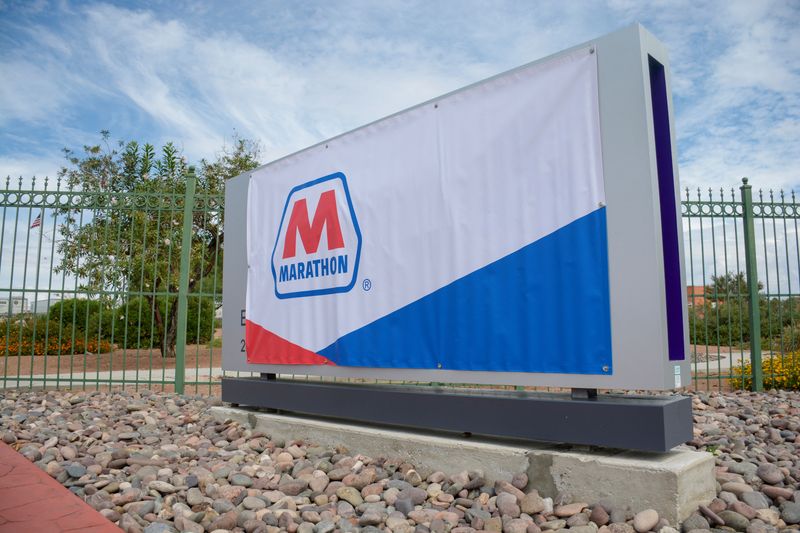By Erwin Seba
HOUSTON (Reuters) -The United Steelworkers union (USW) and lead oil company negotiator Marathon Petroleum (NYSE:MPC) face an early Tuesday deadline to agree on a new contract for U.S. refinery and chemical plant workers, said sources familiar with the talks.
The decision to call a strike for some of the thousands of workers whose contracts expire shortly after 12 a.m. (0600 GMT) on Feb. 1 will be made by top USW officials but may not come until late on Monday, the sources said.
Union officials could also choose to extend the strike deadline if talks seem to be making progress to an agreement on a new contract.
The last nationwide strike was in 2015, 35 years after the previous work stoppage.
So far, the talks with Marathon have progressed slowly over 2-1/2 weeks.
The company has only offered small increases in pay-raise proposals, the sources said.
Marathon spokesperson Jamal Kheiry declined to comment on Monday.
Marathon has previously said it is committed to negotiating in good faith with the USW to produce a mutually satisfactory agreement.
Union officials did not reply to requests for comment on Monday.
Marathon’s most recent offer was for a 5.5% increase over three years. The first pay offer, made last week, was for 3% over three years, according to the sources.
The current contract, negotiated in 2019, provided an 11% increase in pay for refinery workers over three years.
If a strike is called, it likely will follow the pattern of the 2015 stoppage, which began on Feb. 1 of that year and expanded to 12 refineries, accounting for a fifth of U.S. crude oil processing capacity, and three chemical plants.
Strikes at several of the refineries continued for weeks after the nationwide strike ended in mid-March, with the longest at Marathon’s Galveston Bay Refinery in Texas City, Texas, ending in early July 2015.
Also, if a strike is called, workers at refineries will not immediately walk off their jobs, but will work to the end of their shifts and then hand over refinery operations to replacement workers, the sources said.
During the 2015 strike, only one refinery shut down but others did cut production to 50% of capacity.
Source : Reuters/ Investing.com


